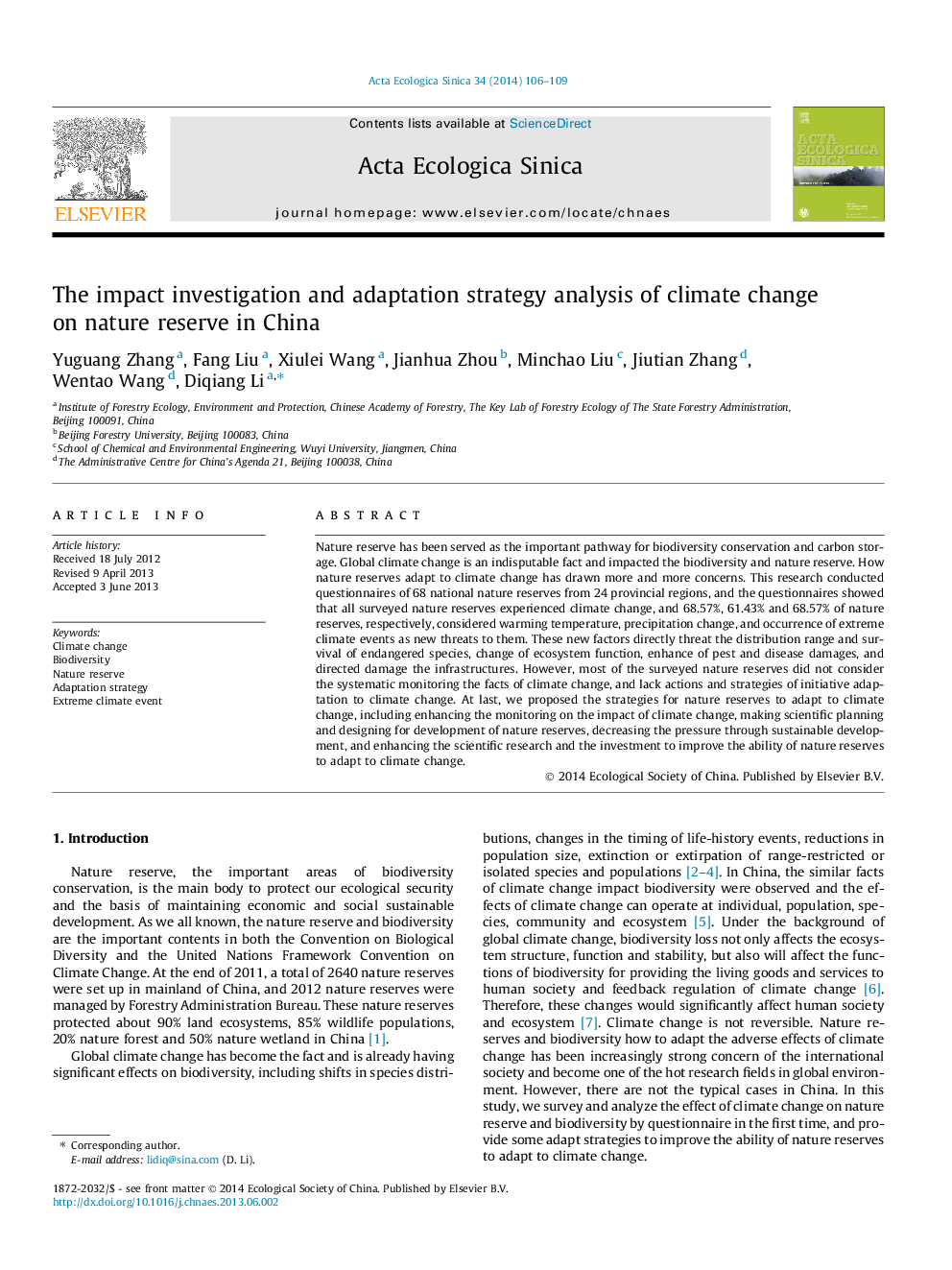| Article ID | Journal | Published Year | Pages | File Type |
|---|---|---|---|---|
| 4379988 | Acta Ecologica Sinica | 2014 | 4 Pages |
Nature reserve has been served as the important pathway for biodiversity conservation and carbon storage. Global climate change is an indisputable fact and impacted the biodiversity and nature reserve. How nature reserves adapt to climate change has drawn more and more concerns. This research conducted questionnaires of 68 national nature reserves from 24 provincial regions, and the questionnaires showed that all surveyed nature reserves experienced climate change, and 68.57%, 61.43% and 68.57% of nature reserves, respectively, considered warming temperature, precipitation change, and occurrence of extreme climate events as new threats to them. These new factors directly threat the distribution range and survival of endangered species, change of ecosystem function, enhance of pest and disease damages, and directed damage the infrastructures. However, most of the surveyed nature reserves did not consider the systematic monitoring the facts of climate change, and lack actions and strategies of initiative adaptation to climate change. At last, we proposed the strategies for nature reserves to adapt to climate change, including enhancing the monitoring on the impact of climate change, making scientific planning and designing for development of nature reserves, decreasing the pressure through sustainable development, and enhancing the scientific research and the investment to improve the ability of nature reserves to adapt to climate change.
